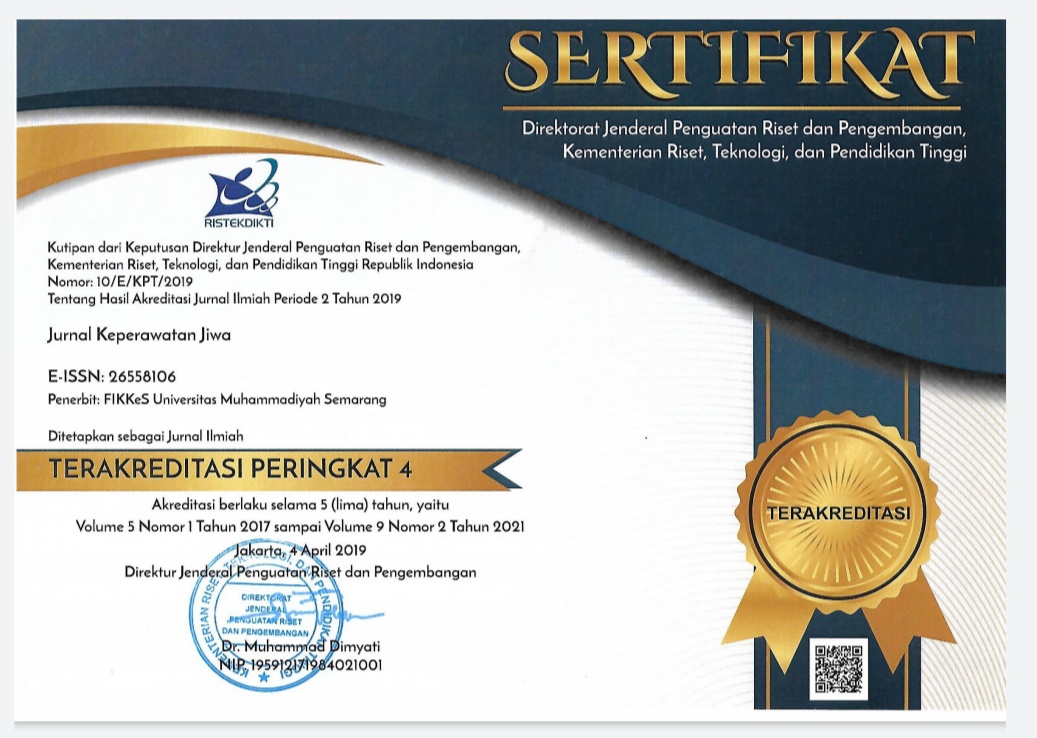Efek Terapi Perilaku, Terapi Kognitif Perilaku dan Psikoedukasi Keluarga pada Klien Halusinasi Menggunakan Pendekatan Teori Berubah Kurt Lewin
(1)
(2)
(3)
(*) Corresponding Author
Abstract
Hallucination is the most nursing diagnose found in mental health hospital. The purpose of this scientific report is to determine the effect of behavioral therapy, cognitive behavioral therapy and family psychoeducation therapy on client’s skill and signs and symptoms of hallucination using Kurt Lewin’s Change Theory Model approach. The method used is the application of behavioral therapy, cognitive behavioral therapy and family psychoeducation to 16 clients with hallucination. Clients are grouped into three groups: 8 clients were given behavioral therapy, 4 clients were given behavioral therapy and family psychoeducation, and 4 clients were given cognitive behavioral therapy. The results showed cognitive behavior therapy increases client’s skills and family’s skills but reduces most signs and symptoms of hallucination than clients who received behavioral therapy and psychoeducation or client who received behavior therapy only. Cognitive behavior therapy is strongly recommended in treating client with hallucination.
Keywords
Hallucination; Kurt Lewin’s Change Theory Model; behavior therapy; cognitive behavior therapy; family psychoeducation therapy.
Full Text:
PDFArticle Metrics
Abstract view : 2840 timesPDF - 1690 times
DOI: https://doi.org/10.26714/jkj.2.2.2014.149-165
Refbacks
- There are currently no refbacks.
PPNI Univ. Muhammadiyah Semarang
Jl. Kedungmundu Raya No. 18 Semarang Gedung NRC University of Muhammadiyah Semarang
Phone: 02476740287
Fax: 02476740287
Email: [email protected]
This work is licensed under a Creative Commons Attribution 4.0 International License.


